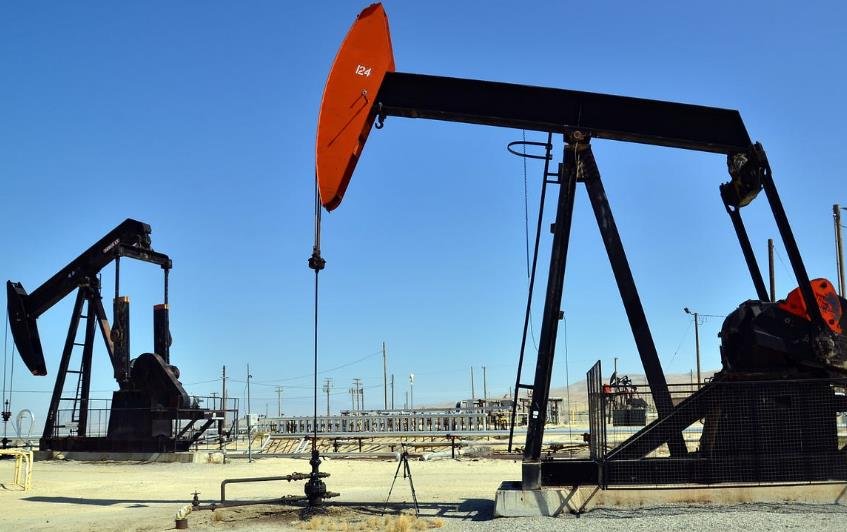Saudi Arabia is making significant strides to become a major player in the global natural gas market. This strategic move is not only aimed at diversifying the kingdom’s domestic energy consumption and export mix but also at cementing its position as a global geopolitical and economic powerhouse. The kingdom’s investments in natural gas are designed to capitalize on the current geopolitical landscape, particularly the economic sanctions imposed on Iran, which holds the world’s second-largest gas reserves. This article explores the economic and geopolitical implications of Saudi Arabia’s gas investments and their potential impact on the global energy market.

Diversifying Energy Resources
Saudi Arabia’s push into the natural gas sector is a strategic effort to diversify its energy resources and reduce its reliance on crude oil. The kingdom’s energy ministry has directed Saudi Aramco, the state-owned oil giant, to prioritize gas over expanding crude oil production capacity. This shift is evident in Aramco’s increased investment in gas projects, including the Jafurah gas field, the largest unconventional non-oil-associated gas field in the kingdom. With estimated reserves of 229 trillion cubic feet of gas and 75 billion barrels of condensates, Jafurah is poised to become a significant contributor to Saudi Arabia’s energy portfolio.
The focus on natural gas is driven by several factors. Firstly, natural gas is seen as a cleaner alternative to oil, aligning with global efforts to reduce carbon emissions and combat climate change. Secondly, the domestic demand for natural gas is rising, particularly for electricity generation and industrial use. By investing in natural gas, Saudi Arabia aims to meet this growing demand while freeing up more crude oil for export. This strategy not only enhances energy security but also maximizes revenue from oil exports.
Moreover, Saudi Arabia’s investment in natural gas is part of its broader Vision 2030 plan, which aims to diversify the economy and reduce dependence on oil revenues. By developing its natural gas sector, the kingdom can attract foreign investment, create jobs, and stimulate economic growth. This diversification is crucial for ensuring long-term economic stability and resilience in the face of fluctuating oil prices.
Geopolitical Implications
Saudi Arabia’s gas investments have significant geopolitical implications, particularly in the context of its rivalry with Iran. The kingdom’s efforts to become a major natural gas player are partly motivated by the desire to counterbalance Iran’s influence in the global energy market. Iran, with its vast gas reserves, has the potential to dominate the market if sanctions are lifted. By strengthening its own gas sector, Saudi Arabia aims to preemptively secure its position and limit Iran’s leverage.
The geopolitical dimension of Saudi Arabia’s gas strategy is also evident in its international partnerships and acquisitions. For instance, Aramco’s recent increase in its stake in MidOcean Energy and its long-term agreement with NextDecade to purchase liquefied natural gas (LNG) from the Rio Grande LNG project in Texas highlight the kingdom’s ambition to expand its global footprint. These moves not only enhance Saudi Arabia’s access to international markets but also strengthen its alliances with key energy players.
Furthermore, Saudi Arabia’s gas investments are likely to influence the dynamics of the global energy market. As the kingdom ramps up its gas production and exports, it could alter the balance of supply and demand, impacting prices and market shares. This shift could have far-reaching consequences for other gas-producing countries and the broader geopolitical landscape. By positioning itself as a major gas exporter, Saudi Arabia can exert greater influence over global energy policies and negotiations.
Economic Benefits and Challenges
The economic benefits of Saudi Arabia’s gas investments are substantial. By developing its natural gas sector, the kingdom can generate significant revenue, create jobs, and stimulate economic growth. The Jafurah gas field alone is expected to attract billions of dollars in investment and create thousands of jobs. Additionally, the increased availability of natural gas can support the growth of energy-intensive industries, such as petrochemicals and manufacturing, further diversifying the economy.
However, there are also challenges associated with this ambitious strategy. Developing large-scale gas projects requires substantial capital investment and advanced technology. Saudi Arabia will need to secure financing and partnerships with international companies to successfully implement its plans. Moreover, the global gas market is highly competitive, with established players like Russia, Qatar, and the United States. Saudi Arabia will need to navigate this competitive landscape and establish itself as a reliable and attractive supplier.
Environmental concerns also pose a challenge. While natural gas is cleaner than oil, it is still a fossil fuel that contributes to greenhouse gas emissions. Saudi Arabia will need to balance its economic ambitions with its environmental commitments, investing in technologies to minimize the environmental impact of gas production and use. This includes exploring carbon capture and storage solutions and investing in renewable energy sources to complement its gas strategy.
